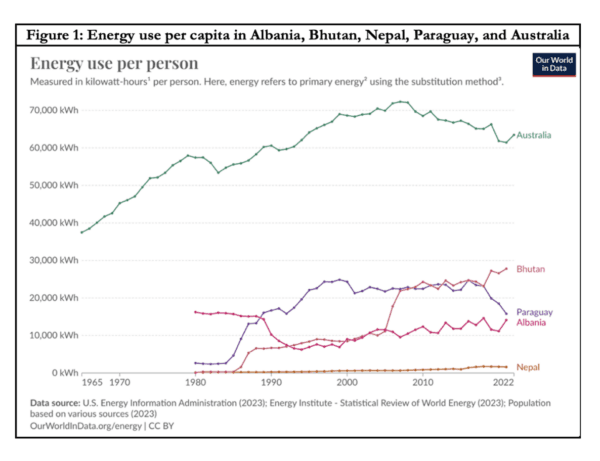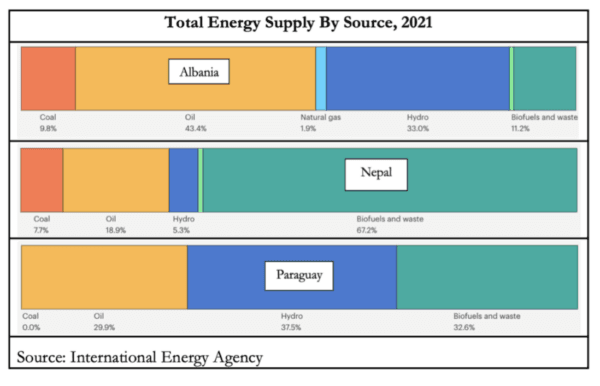By Ramesh Thakur | Epoch Times
During a radio interview with 2GB on March 18, businessman Dick Smith said, “no country has ever been able to run entirely on renewables—that’s impossible.”
He said this in the context of advocating for nuclear power to be added to Australia’s energy mix.
The Australian Broadcasting Corporation (ABC) RMIT Fact Check promptly investigated this and adjudged that “experts consulted by RMIT ABC Fact Check suggested Mr. Smith’s statement doesn’t hold up.”
In a follow-up interview on 2GB on March 25, Mr. Smith told host Ben Fordham: “I’m angry. The whole document is full of misinformation and lies, it’s designed to discredit me. Absolutely disgusting.”
He demanded immediate corrections from the taxpayer-funded broadcaster’s fact check unit, and threatened defamation action because the article was damaging his credibility. X owner billionaire Elon Musk joined in, posting that, “having government ‘fact-checkers’ is a giant leap in the direction of tyranny!”
U.S. columnist Michael Shellenberger, who played a central role in breaking the Twitter Files story, said:
“The Australian government is demanding that X, Facebook, and other social media companies censor content that its fact-checkers say is inaccurate. But now, one of the government’s main fact-checker groups has been caught spreading misinformation about renewables and nuclear.”
Bizarrely, to support its negative verdict on Mr. Smith, the fact check quoted Stanford University’s Professor Mark Jacobson to the effect that California had “been running on more than 100 percent WWS [wind-water-solar] for 10 out of the last 11 days for between 0.25 and 6 hours per day.”
Similarly, the fact check cited a forecast from the Australian Energy Market Operator that renewables will be able to meet the entire demand of the national electricity market by 2025, “albeit for short periods of time (for example, 30 minutes).”
There is a major comprehension issue here. Or is it elementary maths?
If California has been relying on renewables for between 0.25 and 6 hours per day, quite clearly that confirms Mr. Smith’s claim, for renewables could not manage power needs for between 18 to 23.75 hours per day.
In addition, Mr. Smith claimed subsequently, California could draw on its own and two other states’ nuclear power as base-load backup power to renewables. Nor does a 30-minute capacity indicate the ability to meet Australia’s electricity demand 24/7 for 365 days a year.
The Proliferation of Fact Checkers
The fact check industry came into its own during the COVID-19 years, gained in popularity, and proliferated.
However, they typically operate with little transparency and clarity on the credentials of the fact-checkers and their qualifications to judge competing claims between experts.
After all, contestation is normal in scientific discourse. Anything that cannot be questioned but relies on authority alone is dogma, not science.
Fact-checkers were soon discredited for several reasons.
They took official claims by governments and the WHO as authoritative and true.
This produced some major flip-flops during the pandemic. For example, was the origin of the coronavirus in Wuhan’s wet market or the research laboratory in the Wuhan Institute of Virology located just a few kilometres away? Not to mention claims about the ability of vaccines to stop infection, transmission, and death.
Second, they were shown to have a pronounced Left-leaning bias.
Third, their modus operandi turned out to be to ask different experts for their reactions to the claims under investigation, and then side with the experts who aligned with their own bias.
Fourth, and most importantly, when challenged in court, Facebook’s defence in December 2021 was that fact-check pronouncements were protected “opinions” under the First Amendment.
Icelandic economist Thorsteinn Siglaugsson was wickedly accurate in sketching the typology of fact-checking techniques.
Create a strawman argument that can be easily knocked down. Assert that a claim is not supported by evidence, is questioned by other experts, lacks context, is misleading, or is only partly true, etc. Engage in ad hominem attacks against the person, rather than with their evidence and argument.
Problems With RMIT’s Claim
Meanwhile, Mr. Smith makes the point that the fact-checker never contacted him. He could have told them he was talking about the total energy requirements, not just electricity requirements.
Professor Jacobson told Fact Check that four countries draw 10 percent of their electricity power requirements solely from renewables: Albania, Bhutan, Paraguay, and Nepal.
The first thing to note is that the electricity consumption per capita of the four countries is substantially lower than that of Australia, an advanced industrial economy (Figure 1).
Second, none of the four countries is an island continent without the option of connecting to a geographically wider energy grid to make up for shortfalls in national energy needs.
In 2021, 24.1 percent of Albania’s, 27.6 percent of Nepal’s, and 10.1 percent of Paraguay’s energy needs were met from imports.
Third, according to Our World in Data, the share of electricity production from renewables for Paraguay was 99.88 percent in 2021, and for the remaining three was 100 percent.
But power for the electricity grid made up only 22 percent, 41 percent, 13 percent and 38 percent of the total energy consumption of Albania, Bhutan, Nepal, and Paraguay, respectively.
Figure 2 shows the energy mix of three countries using data from the International Energy Agency (Bhutan’s is not available from that source).
The Case of Nepal
I’d like to look in more detail at Nepal, for a simple reason.
I was born and grew up in the state of Bihar just 20-30 kilometres from the border with Nepal which is an open border for citizens of the two countries. Consequently, I am intimately familiar with life and communities on both sides of the border.
Like people in northern Bihar, many Nepalese lack access to electricity and rely heavily on wood, agricultural waste and dung with high CO2 emissions, for their daily cooking and heating needs.
Similarly, on both sides of the border, fossil fuels power the majority of transportation, and diesel generators are commonly used as a power source to offset unreliable grid electricity supply.
Speaking of which, a common complaint from local Indians is that Nepal imports a lot of the electricity produced in India even though India’s own power requirements are not fully met.
In other words, the ABC RMIT Fact Check conclusions were misleading, lacked context, and made false claims about what Dick Smith had said in his interview.
Good to see therefore that despite repeated insistence that it was standing by its work, late on March 26 the Fact Check unit apologised to Mr. Smith and amended its report.

